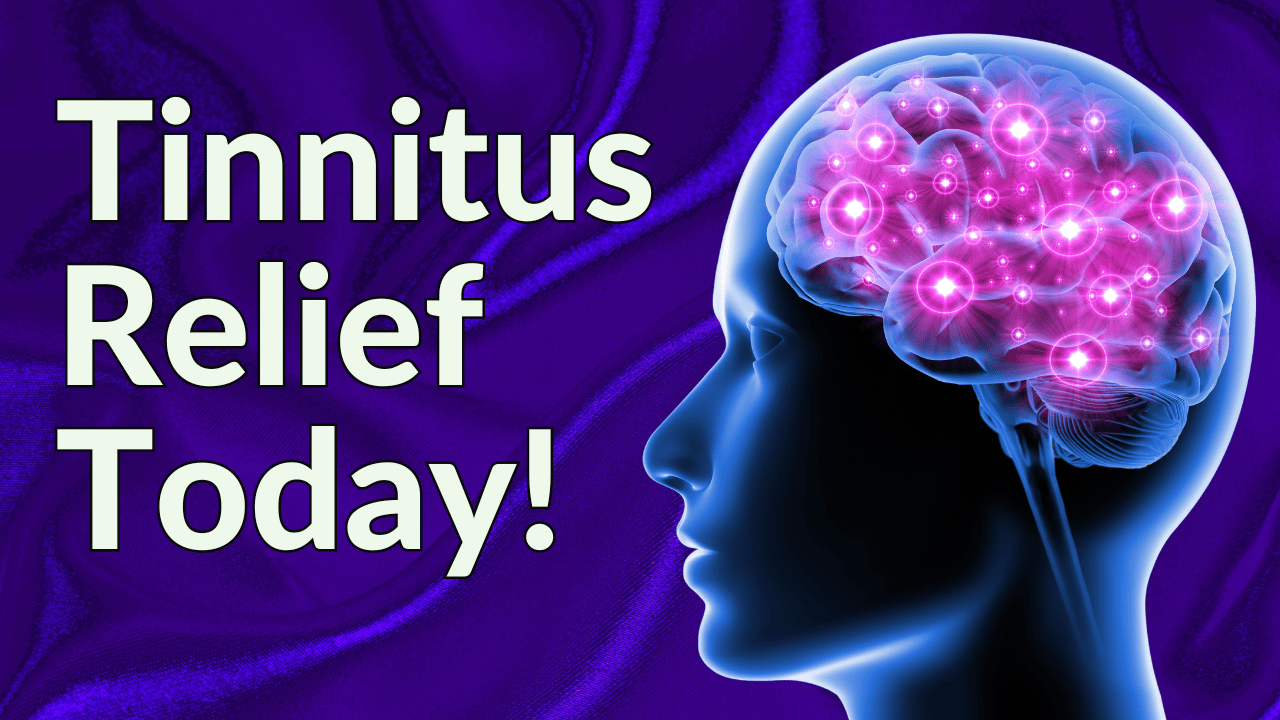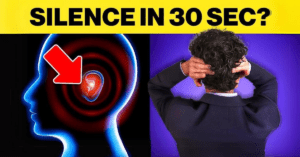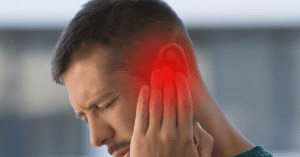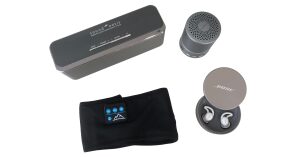There’s no medical cure for tinnitus, and that’s a tough pill to swallow for many people. Ringing in the ears can lead to feelings of anxiety, dread, or even anger. For some people, it can even mean missing out on the things they love to do. Stressing about tinnitus can often make it worse, and this is how many tinnitus patients end up trapped in a negative cycle.
Tinnitus is complex, and often confusing. That makes it harder to treat, but it doesn’t necessarily mean there’s nothing that can be done. Experts believe the more informed patients are about their tinnitus, the more hopeful they’ll feel about the prognosis. In the meantime, other management approaches help people with tinnitus live fulfilling lives without the ringing in their ears looming over them.
No, There’s No Cure For Tinnitus
At least 10% of the population experiences some form of tinnitus, with estimates reaching as high as 25%. Unfortunately, there is currently no medical cure that completely eliminates the phantom sounds of tinnitus. While this can be frustrating, tinnitus is not alone in this regard. Many conditions, such as cancer, diabetes, Parkinson’s, rheumatoid arthritis, and even the common cold, also lack definitive cures. Over-the-counter medications and home remedies for these conditions are designed to manage symptoms, like a runny nose or sore throat, and provide temporary relief.
"As a recent graduate who’s achieved stage four habituation, I cannot thank Treble Health enough for getting me to the finish line."


"As a recent graduate who’s achieved stage four habituation, I cannot thank Treble Health enough for getting me to the finish line."
– Louis
Book a free consultation to learn which Treble Health solution is right for you. Join Louis and thousands more who have found lasting tinnitus relief.
Tinnitus can present itself in different forms. Some people with tinnitus find that the phantom sounds disappear after a few days or weeks, and/or only return when they feel stressed out, or hear loud noises. Others have continuous tinnitus symptoms with varying levels of severity.
Whatever the case, tinnitus is treatable. Experts believe, that with the right tinnitus techniques, you can train your brain to filter out the ringing in the ears or ignore it – a process called habituation. Over time, this should reduce the tinnitus volume, and its overall effects (even if the tinnitus doesn’t disappear completely).
Tinnitus Needs More Research



There simply hasn’t been enough research into tinnitus yet. When compared to other neurological conditions, the number of research studies regarding tinnitus was significantly lower. Depression, for example, has 27 times more registered trials than tinnitus. When, according to the National Institute of Mental Health, less than 10% of the adult population in the United States suffers from depression.
This is largely due to low funding. Between 2009 and 2011, the National Institute of Health allocated $200 million for research into hearing disorders. Of that, only $5 million was invested into tinnitus research, despite the over 30 million Americans who deal with its symptoms.
Besides a lack of funding, tinnitus research is limited because:
- Tinnitus is highly multidisciplinary – Most people think tinnitus is a hearing problem, when in reality, it can have different causes, take different forms, and affect multiple parts of the body, such as the ears, head, neck, jaw, and even psychology. This means the research team would have to be comprised of more than just audiologists and ENTs, and include areas such as psychology, physiology, auditory neuroscience, bioengineering, computer modeling, and more. Very rarely will you find this exact combination of expertise in one research institution, even on a global scale.
- Tinnitus is ambiguous and inaudible – In the simplest sense, tinnitus is a phantom ringing or buzzing sound in the ear that is rarely audible to anyone else. Other definitions refer to it as “the conscious perception of an auditory sensation in the absence of a corresponding external stimulus”. Tinnitus can sound like anything, even an orchestra, marching, or religious music, although these types of tinnitus are more commonly referred to as auditory hallucinations or musical ear.
- There are different tinnitus subtypes – All tinnitus isn’t the same, but at least 80% of tinnitus cases are of these three subtypes: central, cochlear, and somatosensory. Some of the most common causes of tinnitus symptoms include TMJ, a jaw condition that causes pain, inflammation, and tightness, loud noise exposure, hearing loss, medication changes, ear disorders, and head/neck trauma. Sometimes, tinnitus can be linked to multiple causes, which makes researching its symptoms even more difficult.
Much of what we’ve been able to discover about other conditions is thanks to animal research or computer modeling. This makes it even harder to find the underlying cause of tinnitus if it doesn’t manifest itself in other ways.
Tinnitus doesn’t manifest itself the same way in all patients and its symptoms can also fluctuate at any point, even on a daily basis. This might not be reflected through their self-reporting tools. Many existing studies have only been able to provide encouraging first-stage results, but are hardly able to test a more varied pool of participants with different types of tinnitus, and in different stages of progression. Furthermore, many patients don’t even know what subtype they have, nor do healthcare professionals always accurately diagnose it.
- Tinnitus is hard to objectively measure – This can pose a host of problems because everyone is different and so is their tinnitus. Think of it this way, if a doctor wanted to measure how well a cholesterol medication works for a patient, they’d test the amount of cholesterol in the blood before and after. This is a biomarker; an objective test that can be compared to a placebo treatment for clearer results. Though there’s no cure for high cholesterol, being able to measure the severity of the disease in this sense proves useful. Researchers use subjective questionnaires to measure the severity of the tinnitus, and outline how well it works. However, they have to rely entirely on patient input, as well as participation for managing its symptoms, which can be imprecise and inconsistent. Perception and sensitivity to tinnitus can also play a part in patient results.
Since tinnitus is hard to measure (and observe), experts aren’t even sure what a cure would look like. The most straightforward answer would be an absence of phantom sounds, but people with no tinnitus, and normal hearing can hear these sounds in soundproof environments. In fact a 1953 study by Heller and Bergman found that 94% of participants with normal hearing who were placed in an anechoic chamber reported hearing tinnitus like sounds.
Complete eradication of tinnitus sounds might be unrealistic, which is why some people think the use of the word “cure” in tinnitus management is problematic.
The best tinnitus measurement tool to date is the Tinnitus Functional Index or TFI. The TFI measures tinnitus loudness, annoyance, and awareness, as well as its effects on sleep, concentration, mood, and social life. It requires a 13-point reduction to demonstrate a significant clinical reduction in tinnitus symptoms.
Promising Tinnitus Leads
In a recent patient survey, half of tinnitus patients said they’d be likely to try a prescription drug if it decreased their tinnitus by even half. Yet, even if a tinnitus medication popped up out of thin air tomorrow, it would be difficult for many patients to get their hands on it. Most tinnitus patients see an audiologist who can’t prescribe medication, meaning there’s no legal pathway for them in the United States. It’s very likely things will change if this medication emerges.
There’s currently a group of researchers in Sweden working on some sort of pharmaceutical treatment to meet this demand. We’re not quite near prescription drugs yet, but other tinnitus studies have been promising. These include psychological intervention in the form of hypnosis and biofeedback, as well as minimally invasive interventions such as
Repetitive Transcranial Magnetic Stimulation (rTMS), Transcranial Direct Current Stimulation (tDCS) and Deep Brain Stimulation.
Dr. Susan Shore’s device uses bimodal stimulation to promote habituation. Unlike the above in-office treatment options, Dr. Susan Shore’s device delivers audio pulses and electrical stimulation from the comfort of home. Similar devices like Lenire and Tinearity G1 by Duearity use the same science and have been useful for some patients.
Effective Tinnitus Treatments
Tinnitus isn’t something you can just ignore. Though official figures estimate that 1 in 10 Americans have tinnitus, many believe tinnitus is underdiagnosed, and the figures are actually larger. Tinnitus isn’t a life-threatening condition but left untreated, it can worsen and change the way patients experience the world around them. This is why it’s important to seek professional treatment for tinnitus.



The most effective treatment method for tinnitus is Tinnitus Retraining Therapy (TRT). It combines two otherwise effective treatments, sound therapy and Cognitive Behavioral Therapy(CBT), and tailors the approach to tinnitus management. The purpose of this treatment is to promote habituation or change the brain’s negative reactions to the phantom sounds.
Tinnitus symptoms are also managed using:
- Relaxation Techniques – Stress can contribute to tinnitus symptoms. Yoga, meditation, mindfulness, breathing exercises, massages, and muscle relaxation are useful for reducing stress and can improve tinnitus symptoms when combined with other tinnitus management techniques.
- Hearing Technology – About 90% of people with tinnitus have some degree of hearing loss and can benefit from hearing technology such as hearing aids, and cochlear implants. Some hearing aids even have tinnitus features to deliver sound therapy and promote habituation. Hearing protection like earmuffs and earplugs are also useful since exposure to loud noise can trigger tinnitus.
- Alternative Medications – Where possible, changing medication can significantly improve tinnitus symptoms, or even help them disappear. Your doctor will assess the list of medications you take to detect and determine if any of them are ototoxic.
- Lifestyle Changes – Diet, exercise, and quitting certain vices (smoking and drinking) can help improve the underlying condition causing tinnitus symptoms, and overall health and well-being.
Manage Tinnitus with Treble Health Experts
At Treble Health, we recognize the intricacies of tinnitus, and our team of audiologists is proficient in addressing the unique challenges that can accompany tinnitus. If you are looking for treatment options, we strongly encourage you to schedule a complimentary telehealth consultation with an expert on our team.
During this 20-minute Zoom session, our team will listen to your story, answer any questions you may have, and provide personalized recommendations to alleviate your tinnitus symptoms. Don’t let tinnitus control your life any longer; click here to book your free consultation and start your journey to better auditory health.
Next Step: Book Free Consultation
- 75% of patients reduced their tinnitus within three months after following our recommendations.
- "I feel like Treble Health literally gave me my life back." - Randy S. (verified customer)
- Join thousands of people who have reduced their tinnitus after scheduling a free consultation.




















